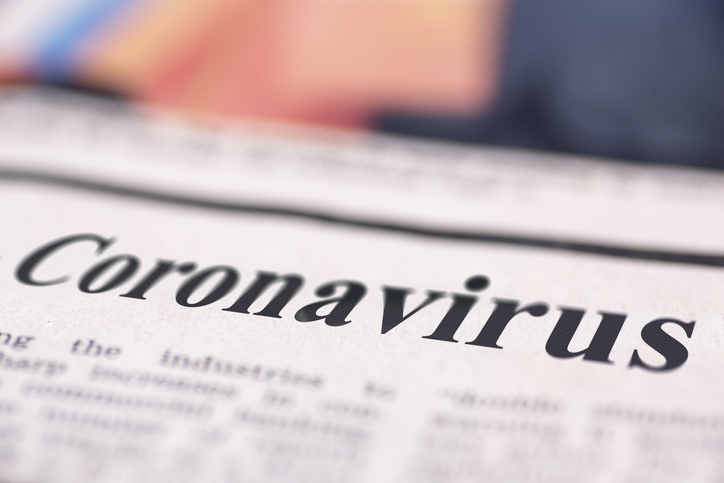Client Alert: What Employers Need To Know About Emergency Coronavirus Legislation

** UPDATE 3/19/2020 **
Please see this post for an update on this legislation.
In the early morning hours of Saturday, March 14, 2020, the U.S. House of Representatives passed an emergency coronavirus bill brokered between Nancy Pelosi and the Administration, by an overwhelming majority. The bill is still in the House awaiting technical corrections, and then it goes to the Senate, where prospects for swift passage this week, as initially expected, are unclear.
Here are highlights of the parts of the bill most applicable to the employer/employee relationship. Please note, the Senate has not yet voted and thus the employment features of the bill may well change.
Emergency Family and Medical Leave Expansion Act
The bill temporarily expands the Family and Medical leave act to all employers under 500 employees and nearly all employees, to cover coronavirus-related absences, with partial pay required for leaves over two weeks.
Coverage and eligibility:
- Applies to employers with less than 500 employees
- Applies to employees with at least 30 days of employment at the employer.
Reasons for leave: Applies to the coronavirus public health emergency when:
- Public health or a health care provider says employee is sick or needs to be isolated;
- Employee needs to care for a family member who is sick or has been directed to isolate; or
- Employee needs to care for a child under 18 whose school/care provider/paid child care is closed due to the public health emergency.
Pay, benefits and reinstatement
- First 14 days may be unpaid, during which employee may use sick or vacation (including the paid sick leave provided under the next part of the law, the Emergency Paid Sick Leave Act), but employers may not require the use of such leave.
- For the remaining 10 weeks of FMLA leave, employers must pay 2/3 of the regular rate of pay.
- For less than full-time, the pay would be prorated to reflect the time the employee is regularly scheduled to work.
- As under regular FMLA, during leave employees are entitled to continued medical benefit coverage and are guaranteed reinstatement to the same or similar position at the end of leave, subject to certain exceptions.
Exceptions:
- The U.S. Department of Labor can issue regulations regarding employers with less than 50 employees when the imposition of such a law would jeopardize the viability of the business as a going concern.
- There can be relief to the right to reinstatement if the employer has fewer than 25 employees under certain circumstances.
Effective dates:
- The new law would take effect within 15 days after enactment.
- Sunsets (expires) on December 31, 2020.
Emergency Paid Sick Leave Act
The bill requires covered employers to provide two weeks of paid sick leave immediately for use during coronavirus related absences.
Coverage and eligibility:
- Applies to all employers with less than 500 employees.
- All employees are eligible; no minimum time working at the employer for the employee to qualify.
Reason for Usage: Emergency paid sick leave can be taken for the coronavirus public health emergency in the following situations:
- For the employee self-isolating or under quarantine due to coronavirus diagnosis or exposure.
- To assist a family member who is self-isolating or quarantined due to exposure to coronavirus diagnosis or symptoms.
- To care for a child under 18 whose school, care provider or paid child care closes due to public health emergency.
Emergency Paid Sick Leave Entitlement
- 14 days of paid sick leave for the employee’s own illness or isolation.
- 2/3 of the employee’s regular rate of pay when caring for the family member or when the school/care provider closes.
- 80 hours of pay for a regular full-time employee. Prorated for part-time.
- Emergency paid sick leave is in addition to any sick time already provided.
- The employee may choose to use emergency paid sick leave days first, before any accrued sick or vacation time.
Other Provisions
- The employer must post a Notice regarding this law. The DOL shall issue a sample Notice.
- Payments for emergency paid sick leave do not constitute “wages” for purposes of payroll contributions.
Effective dates
- Takes effect within 15 days after the enactment.
- Sunsets (expires) on December 31, 2020.
Obviously, this law is likely to evolve as the Senate considers and votes on it. Our lawyers are closely monitoring the status of this important new legislation. As soon as the final bill is passed by the U.S. Senate and signed by the President, we will send out a detailed summary.
If you have any questions about the impact of this new law on your business, please contact partners John Baum at (415) 835-9006, jbaum@hkemploymentlaw.com or Felicia Reid at (415) 835-9024, freid@hkemploymentlaw.com.





